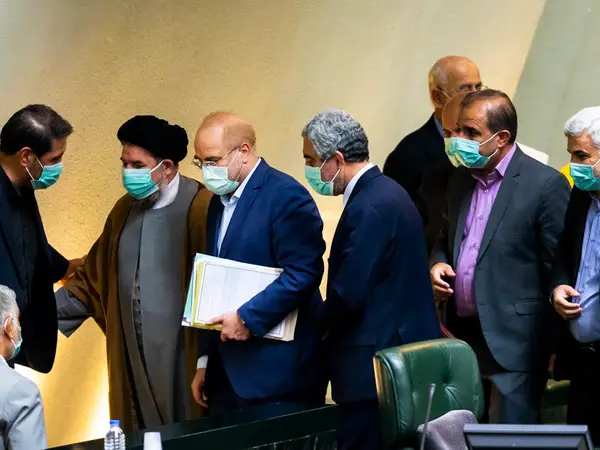President Ebrahim Raisi's "inaction" and "indecision" have frustrated Iran's conservatives and hardliners in parliament who supported him just weeks ago.
Mostafa Mirsalim, a long-time conservative politician, and former presidential candidate has said that the Raisi administration is unable to meet the people's expectations. Referring to frequent protests to economic hardships outside the Majles, Mirsalim said that people have every right to be unhappy about Raisi's performance.
Mirsalim also said that the government's inaction in solving economic problems cannot last for too long. He warned that "There are groups who might take advantage of the situation and make it even worse."
Moderate news website Rouydad24, which carried the interview with Mirsalim warned in a report by Mohammad Auyati that although most protests in Iran were political in nature until a decade ago, nearly all protests since have been motivated by declining prosperity. However, while the website attributed most economic problems to the impact of US sanctions, Mirsalim and other establishment politicians prefer not to mention the sanctions.
The reason is that if sanctions are highlighted, questions immediately arise about Iran’s nuclear program and foreign policy. Already many commentators have been openly saying that without improvement of relations with the United States Iran’s economy cannot come out of its current crisis.
Meanwhile, Ahmad Bighash, another hardline lawmaker, said that the members of Raisi's economic team are not competent enough to tackle the country's ongoing problems. Referring to systematic corruption in Iran, Bighash pointed out that "Most of those who should address the problem of corruption in Iran are themselves involved in corruption in one way or another or their children are implicated in corruption-related cases. That explains why we have not been successful in dealing with corruption."
On Thursday, hardline academic Mohammad Sadeq Koushki said that "Raisi has not done anything to solve the people's problems," and warned that "this is likely to affect the public’s attitude toward his administration." Koushki said that the Iranian government has lost most of its political capital among Iranians during the past eight years under President Hassan Rouhani and the new government must try to rebuild confidence in the political system.
Koushki added that if people’s trust is not regained, the first thing that will happen is that voters will not welcome any election in the future. "Then all of us are likely to be drowned as we are all in the same boat," he said.
Last week, another member of parliament, Gholamreza Noori, also warned that criticisms of the Raisi administration are likely to intensify as the country's economic crisis continues. He said that the protests in 2018 and 2019 should have been an alarm for the country's officials about the implications of economic crisis, but officials appear to have lost their way and some of them are even implicated in financial corruption cases. Noori also warned Raisi that during the past three months more lawmakers have turned against him.
Not only the number of critics has been on the rise, but it appears that their rhetoric about the Raisi administration is getting increasingly intense. Moineddin Saeedi, representing Chabahr, in the underprivileged province of Sistan and Baluchestan said on Thursday: "The people have many expectations of lawmakers and the Majles is not likely to forgive the administration's errors."
